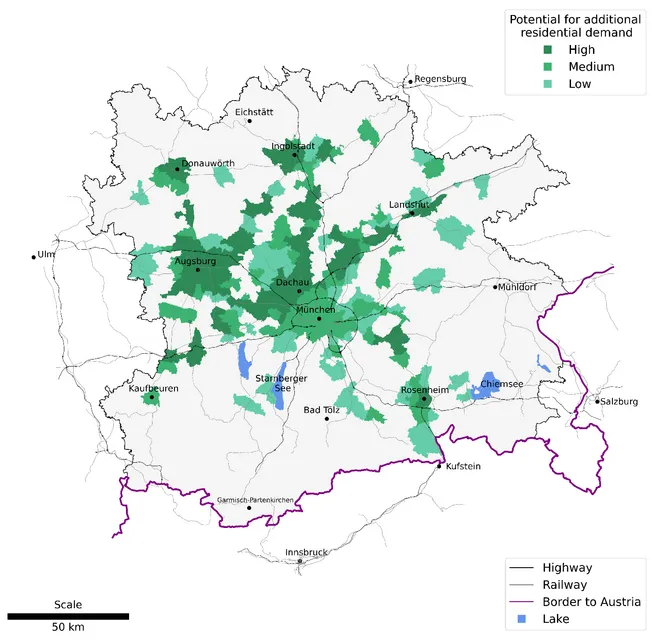A newly published paper by the Chair of Urban Development looks at potential medium to long-term consequences of higher shares of working from home on the locational decisions of households in the metropolitan region of Munich. It was published in the journal Urban Planning and it can be accessed here. An article in Süddeutsche Zeitung on 02.06.2021 and an article in KOMMUNAL on 04.06.2021 already reported on the research results.
Working from Home (WFH) as response to the Covid-19 pandemic is likely to persist in some form after the pandemic. WFH individuals that do not commute to offices anymore (or only less) may be inclined to move to a new home suiting their preferences better. It is probable that more space at home is desired, yet it needs to be affordable. This bears the question of whether there will be regional consequences induced by the shift of locational residential preferences of WFH individuals. A metropolitan region that is inhabited by a presumably high share of WFH individuals is the Munich Metropolitan Region (MMR), which serves well as a case study. We collect data on municipality-level for relevant aspects of residential locational choices and develop an index for the potential of additional residential demand for each municipality in the MMR. Our results indeed suggest a sprawl from the region’s centre, the city of Munich.
